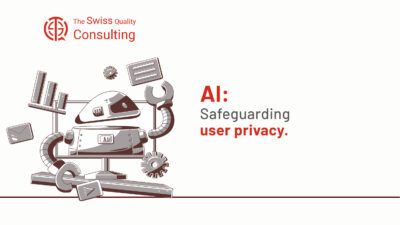Protecting Sensitive Data and Functions in Saudi Arabia and the UAE
Explore how Business Central’s role-based security features can protect sensitive data and functions in Gulf businesses. This article delves into granular access control, risk mitigation, regulatory compliance, and user management, highlighting the importance of data security in Saudi Arabia and the UAE.
In the ever-evolving landscape of digital threats, ensuring the security of sensitive business data is paramount. Business Central, Microsoft’s comprehensive business management solution, offers robust role-based security features that empower businesses in the Gulf region, particularly Saudi Arabia and the UAE, to safeguard their critical information and maintain regulatory compliance. By implementing a granular access control system, Business Central enables organizations to mitigate risks, prevent unauthorized access, and foster a culture of security consciousness.
Granular Access Control: Empowering Precise Permissions Management
Business Central’s role-based security model allows businesses to define and assign permissions based on job roles and responsibilities. This granular approach ensures that employees only have access to the data and functions necessary for their specific tasks, minimizing the risk of accidental or intentional misuse of sensitive information. In the Gulf region, where data privacy regulations are stringent, this level of control is essential for maintaining compliance and protecting customer trust. By tailoring permissions to individual roles, businesses can strike a balance between empowering employees and safeguarding their most valuable assets.
Risk Mitigation: Proactive Protection Against Cyber Threats
With cyber threats becoming increasingly sophisticated, businesses in the Gulf must adopt a proactive approach to risk management. Business Central’s role-based security features play a crucial role in this endeavor by limiting access to critical systems and data. By restricting permissions to authorized personnel, organizations can significantly reduce the risk of unauthorized access, data breaches, and other malicious activities. In addition, Business Central’s audit trails provide a detailed record of user actions, enabling businesses to quickly identify and investigate any suspicious activity. This comprehensive approach to risk mitigation helps to create a more secure environment for both employees and customers.
Regulatory Compliance: Meeting Stringent Data Privacy Standards
Saudi Arabia and the UAE have implemented strict data privacy regulations to protect individuals’ personal information. Business Central’s role-based security features help businesses in the Gulf region comply with these regulations by ensuring that only authorized personnel have access to sensitive data. By clearly defining roles and permissions, organizations can demonstrate their commitment to data privacy and maintain the trust of their customers and partners. Additionally, Business Central’s audit trails can be used to provide evidence of compliance during regulatory audits, further strengthening the organization’s reputation for responsible data handling.
Simplified User Management: Streamlining Security Administration
Managing user access and permissions can be a complex and time-consuming task, especially for businesses with a large number of employees. Business Central’s role-based security model simplifies this process by allowing administrators to assign users to predefined roles with preconfigured permissions. This eliminates the need to manually manage individual permissions for each user, saving time and reducing the risk of errors. Additionally, Business Central’s intuitive interface makes it easy for administrators to modify permissions as needed, ensuring that access rights are always up-to-date and aligned with the organization’s evolving security requirements.
Enhancing Operational Efficiency: Secure Collaboration and Productivity
While security is a top priority, it is important to ensure that security measures do not hinder productivity or collaboration. Business Central’s role-based security strikes a balance between protecting sensitive data and empowering employees to work efficiently. By providing employees with the necessary access to the tools and information they need to do their jobs, Business Central enables seamless collaboration and drives productivity. Additionally, the system’s user-friendly interface and intuitive navigation make it easy for employees to access the resources they need without compromising security. This user-centric approach fosters a positive user experience while maintaining a high level of security.
Scalable Security: Adapting to Growing Business Needs
As businesses in the Gulf region expand and evolve, their security needs will inevitably change. Business Central’s role-based security is designed to be scalable, allowing organizations to easily adapt their security policies to accommodate growth and new business requirements. Whether adding new employees, implementing new systems, or expanding into new markets, Business Central’s flexible security model can be tailored to meet the specific needs of each organization. This adaptability ensures that businesses can maintain a robust security posture as they navigate the ever-changing digital landscape.
In conclusion, Business Central’s role-based security is a powerful tool for safeguarding sensitive data and functions in Gulf businesses. By implementing granular access control, mitigating risks, ensuring regulatory compliance, simplifying user management, enhancing operational efficiency, and providing a scalable solution, Business Central empowers organizations to protect their valuable assets and foster a culture of security consciousness.
#BusinessCentral #RoleBasedSecurity #DataProtection #GulfRegion #Cybersecurity #Compliance #RiskManagement #AccessControl #Permissions #UserManagement























